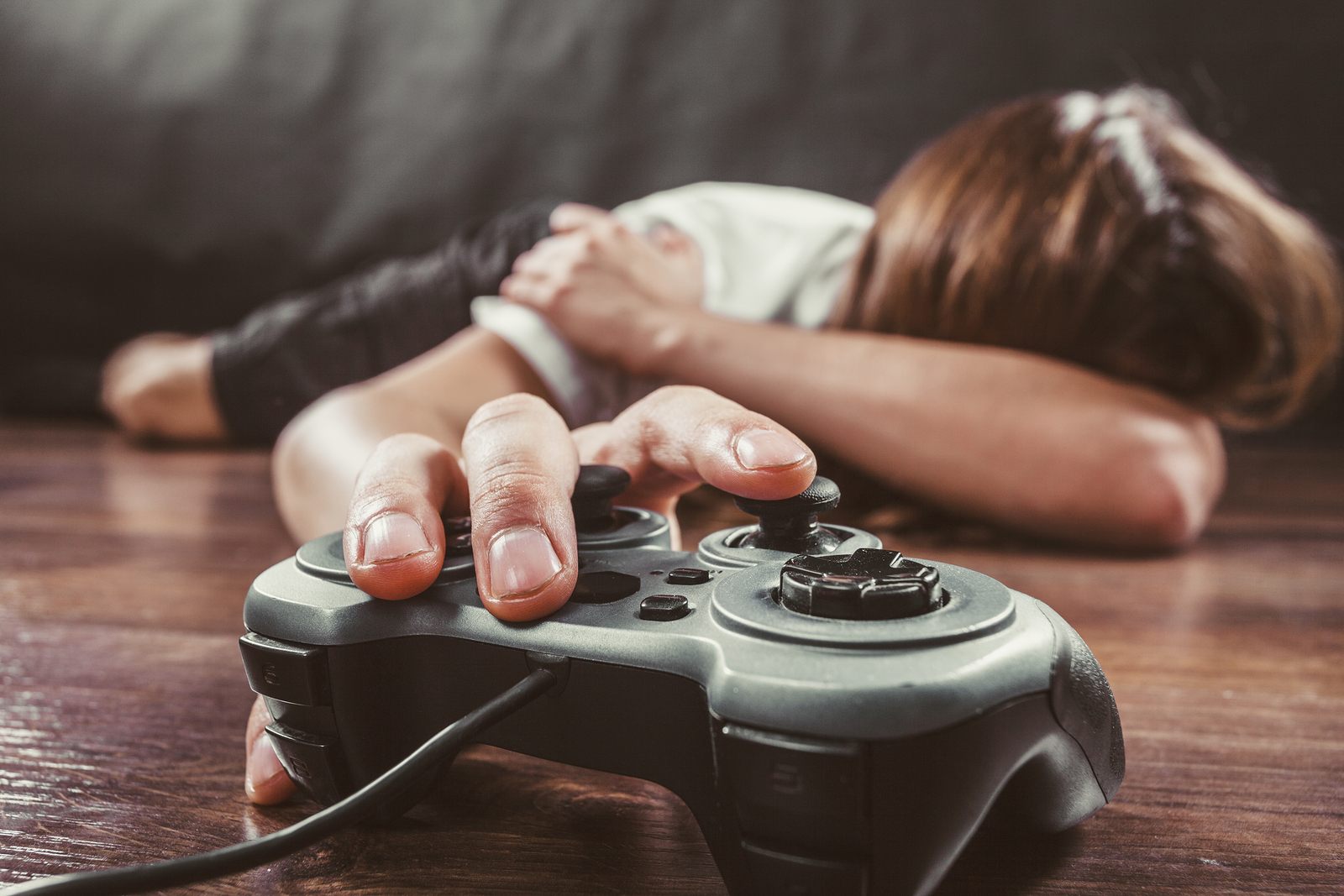Internet Addiction Disorder
Problematic computer use is a growing social issue which is being debated worldwide. Internet Addiction Disorder (IAD) ruins lives by causing neurological complications, psychological disturbances, and social problems. Researchers estimate that 6% of people are addicted to the Internet. Internet Addiction is also known as: computer addiction, compulsive Internet use, Problematic Internet Use (PIU), Internet dependence, or pathological Internet use.
The idea that problematic computer use meets criteria for an addiction, and therefore should be included in the next iteration of the Diagnostic and Statistical Manual of Mental Disorders (DSM) was first proposed by Kimberly Young, PhD in her seminal 1996 paper. Since that time IAD has been extensively studied and is indeed, currently under consideration for inclusion in the DSM.
Meanwhile, both China and South Korea have identified Internet addiction as a significant public health threat and both countries support education, research and treatment. In the United States, despite a growing body of research, and treatment for the disorder available in out-patient and in-patient settings, there has been no formal governmental response to the issue of Internet addiction. While the debate goes on about whether or not the DSM should designate Internet addiction a mental disorder, people currently suffering from Internet addiction are seeking treatment.
When Going Online Becomes An Addiction
There is no one definition for Internet addiction; however, it is generally agreed upon that people who are addicted to the Internet have trouble filling personal and professional obligations because of their online activities, and their use of the Internet causes strain on relationships with family and friends. People who are addicted to the Internet often experience negative emotions or withdrawal symptoms when their Internet access is restricted.
There Are 5 Types Of Internet Addiction
Many of these activities can have serious repercussions if you do them to excess, such as relationship problems or financial consequences.
- Cybersexual: Cybersex and Internet porn
- Net compulsions: Online gambling, shopping, or stock trading
- Cyber-relationships: Social media, online dating, and other virtual communication
- Information Seeking: Web surfing or database searches
- Gaming: Online game playing
Signs and Symptoms
- Being defensive whenever asked to spend less time on the internet
- Easily losing track of time while surfing internet
- Sacrificing other necessary work for surfing online, watching porn, gambling, chatting, or being involved in online games
- Getting a feeling of euphoria while and after using the Internet
- Isolating oneself and becoming introverted in order to use the Internet

Diagnostic Criteria
Mental health professionals recommend that the following five diagnostic criteria are required for a diagnosis of Internet addiction:
- Is preoccupied with the Internet (thinks about previous online activity or anticipate next online session)
- Needs to use the Internet with increased amounts of time in order to achieve satisfaction
- Has made unsuccessful efforts to control, cut back, or stop Internet use
- Is restless, moody, depressed, or irritable when attempting to cut down or stop Internet use
- Has stayed online longer than originally intended.
Additionally, at least one of the following behaviors must be present:
- Has jeopardized or risked the loss of a significant relationship, job, educational or career opportunity because of the Internet
- Has lied to family members, therapist, or others to conceal the extent of involvement with the Internet
- Uses the Internet as a way of escaping from problems or of relieving a dysphoric mood (e.g., feelings of helplessness, guilt, anxiety, depression).
Screening for Internet Addiction Disorder
So, how do you screen for Internet addiction? Basically, here are eleven questions to ask yourself or a loved one. If you answer yes to at least four of these questions, you might consider asking for help. Or, depending on the question, maybe even one “yes” would constitute a good long look at your Internet use.
- Are you preoccupied with using the Internet?
- Are you unable to resist your desire to use the Internet?
- Do you have to use the Internet for certain amounts of time in order to feel satisfied?
- When you cannot use the Internet do you find yourself in a bad mood, anxious, irritable, or bored?
- When you are in a bad mood or irritable, do you turn to the Internet to feel better?
- Do you stay online for longer periods of time than you intended?
- Do you try to decrease your online time over and over again, only to fail?
- Do you have any physical symptoms from being online so much (backache, eyestrain)? Do you continue to use the Internet despite these symptoms?
- Do you have any problems with your school or job performance due to your Internet use? Do you continue to use the Internet despite these problems?
- Do you have any problems with relationships with family or friends due to your Internet use? Do you continue to use the Internet despite these problems?
- Does your Internet use ever violate known laws?
Withdrawal
Like all addiction behaviors, IAD can lead to excess dopamine in the brain. This means people with IAD effectively feel a “high” when engaged on the computer — but it also means they can feel withdrawal symptoms when they aren’t online.
Symptoms of Internet addiction withdrawal include depression, irritability, anxiety, sweating or shakiness, insomnia, mood changes, and — in rare cases — a psychotic break with reality.
How Is Internet Addiction Related To Mental Illness?

Adolescents who struggle with Internet addiction often have other mental health problems like alcohol and substance use, depression, suicidal ideation, ADHD, phobias, Schizophrenia, obsessive-compulsive disorder, and/or aggression. There is an ongoing debate about which comes first for people, Internet addiction or the co-occurring mental health problem.
Adults who are addicted to the Internet are likely to have co-occurring mental disorders such as depression, anxiety, alcohol problems, compulsive behaviors, sleep disorders, ADHD, anger issues, and/or dissociative experiences.
FAQs
1. What is Internet Addiction Disorder?
Internet addiction is defined as any online-related, compulsive behavior which interferes with normal living and causes severe stress on family, friends, loved ones, and one’s work environment. Internet addiction has been called Internet dependency and Internet compulsivity. By any name, it is a compulsive behavior that completely dominates the addict’s life. Internet addicts make the Internet a priority more important than family, friends, and work. The Internet becomes the organizing principle of addicts’ lives.
2. How do you know if you have Internet addiction (IA)?
No single behavior pattern defines Internet addiction. These behaviors, when they have taken control of addicts’ lives and become unmanageable, include: compulsive use of the Internet, a preoccupation with being online, lying or hiding the extent or nature of your online behavior, and an inability to control or curb your online behavior. If your Internet use pattern interferes with your life in any way shape or form, (e.g. does it impact your work, family life, relationships, school, etc.) you may have a problem. In addition, if you find that you are using the Internet as a means to regularly alter your mood you may be developing a problem.
It is important to note that it is not the actual time spent online that determines if you have a problem, but rather how that time you spend impacts your life.
3. What causes Internet addiction?
Internet addiction can be understood by comparing it to other types of addictions. Individuals addicted to alcohol or other drugs, for example, develop a relationship with their “chemical(s) of choice” — a relationship that takes precedence over any and all other aspects of their lives. Addicts find they need drugs merely to feel normal.
In Internet addiction, a parallel situation exists. The Internet — like food or drugs in other addictions — provides the “high” and addicts become dependent on this cyberspace high to feel normal. They substitute unhealthy relationships for healthy ones. They opt for temporary pleasure rather than the deeper qualities of “normal” intimate relationships. Internet addiction follows the same progressive nature of other addictions. Internet addicts struggle to control their behaviors, and experience despair over their constant failure to do so. Their loss of self-esteem grows, fueling the need to escape even further into their addictive behaviors. A sense of powerlessness pervades the lives of addicts.
4. How many people suffer from Internet addiction?
Studies suggest that 1 in 8 Americans suffer from problematic Internet use. Those estimates are higher in China, Taiwan, and Korea where 30 percent or more of the population may experience problematic Internet use.
5. What are the types of Internet Addiction?
Sexting and online sex addiction are still the most common form of Internet addiction. The widespread availability of sexual content online has given rise to a nearly 60% of new cases of online sex addiction from mobile use. New problems related to Internet infidelity and online affairs have also emerged as a sub-type of Internet abuse leading to new trends in divorce and marital separation. Finally, addictions to video games and online role-playing games are the fastest growing forms of Internet addiction, especially in China, Taiwan, and Korea.
6. Do men and women differ in what they become addicted to?
Gender influences the types of applications and underlying reasons for Internet addiction. Men tend to seek out dominance and sexual fantasy online, while women seek out close friendships, romantic partners, and prefer anonymous communication in which to hide their appearance. Men are more likely to become addicted to online games, cyberporn, and online gambling, while women are more likely to become addicted to sexting, social media, eBay, and online shopping. It seems to be a natural conclusion that attributes of gender played out online parallel the stereotypes men and women have in our society.
7. Who is most at risk for developing Internet addiction?
National surveys revealed that over 70% of Internet addicts also suffered from other addictions, mainly to drugs, alcohol, smoking, and sex. Trends also show that the majority of Internet addicts suffer from emotional problems such as depression, mood disorders, social disorders, and anxiety disorders and will use the fantasy world of the Internet to psychologically escape unpleasant feelings or stressful situations. Internet addicts also suffer from relationship problems in almost 75% of the cases and use interactive online applications such as social media, virtual communities, video games or online gaming as a safe way of establishing new relationships and more confidently relating to others through the virtual world.
8. What can you do about Internet addiction if you feel you have it?
Treatment options for Internet addicts include inpatient, outpatient, and aftercare therapy/support. Treatment options may also include family counseling, support groups, and educational workshops for addicts and their families.
Unlike recovering alcoholics who must abstain from drinking for life, treatment for Internet addiction focuses on moderation and controlled use of the Internet, much in the way those suffering from eating disorders must relearn healthy eating patterns. Therapy will most likely be based on cognitive-behavioral techniques to achieve a healthy digital diet of moderated and controlled use, along with a comprehensive psychosocial approach to address the underlying problems in a person’s life creating the need to use the Internet as a way of escape.
“Recovery is hard. Regret is harder.” ~ Brittany Burgunder
352.760.2011
410 E. Jefferson St.
Starke, FL 32091 USA
Email: channon@conniehannon.com
Call me today for a free consultation.
You can tap below to call now from your cellphone






